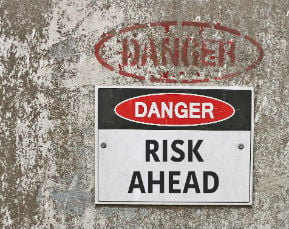 Two years ago Internet provider Cox Communications lost its legal battle against a group of major record labels.
Two years ago Internet provider Cox Communications lost its legal battle against a group of major record labels.
A Virginia jury held Cox liable for pirating subscribers because it failed to terminate accounts after repeated accusations, ordering the company to pay $1 billion in damages.
The ISP disagreed with the verdict and filed an appeal. In its opening brief, filed at the Court of Appeals for the Fourth Circuit last week, Cox argued that it’s incorrectly being held liable for pirating subscribers. Not only that, but the company also warned against the harm that a loss of Internet access can cause to businesses and individuals.
Cox is not alone in this assessment. This week, a variety of organizations and groups have submitted amicus curiae briefs to the court, supporting Cox’s call to reverse the verdict. All these groups highlight the harm Internet disconnections will cause.
Law Professors Back Cox
The first amici curiae brief comes from seventeen intellectual property law professors, who are connected to universities throughout the United States. They highlight various legal arguments.
For example, the professors explain that Cox shouldn’t be held liable for vicarious copyright infringement, as there is no evidence that its policies acted as a ‘draw’ to potential pirates. On the contrary, Cox’s anti-piracy policy appeared to be more strict than those of its competitors.
“There was no evidence in this case that customers subscribed to Cox because of any knowledge or expectation about how it treated infringement. Indeed, the record shows no evidence that customers subscribed to Cox for any reason other than to access the internet for its wide variety of legal uses,” the professors write.
Disconnections are Disproportionate
Keeping the current verdict intact will violate internet principles, the professors note. It causes disproportionate harm because ISPs have to closely monitor the traffic of subscribers, which invades privacy. Alternatively, they can terminate accounts of customers based on third-party allegations, which would be harmful as well.
“If ISPs are forced to engage in proactive enforcement, they have a limited set of actions they can take to control alleged infringement. Their primary tool — terminating accused subscribers from the internet altogether — is a blunt instrument that would lead to remedies disproportionate to any violation.
“The COVID-19 pandemic has reinforced the internet’s importance,” the professors add (pdf). “A loss of internet service, now more than ever, could seriously harm almost every aspect of an individual’s personal and professional life”
EFF and Others Chime In
Similar arguments were made by other amici curiae. This includes a broad coalition of the EFF, Public Knowledge, the Center for Democracy and Technology, and various library organizations.
Their brief (pdf) stresses that Internet terminations are not required under the DMCA, as there are other options to deter pirates. If ISPs are required to disconnect users, based simply on third-party complaints, it will lead to catastrophic consequences.
“More aggressive termination policies would punish the innocent and guilty alike,” the organizations warn the court.
“Distance learning, telework, and telemedicine have become essential during the pandemic and are likely to remain so. For many or even most subscribers, loss of internet access would be catastrophic.”
Internet Association’s Power Company Analogy
A similar warning is repeated in the amicus curiae brief from the Internet Association. The group argues that ISPs can indeed stop piracy by terminating Internet access, but that doesn’t make it a reasonable solution.
If an ISP can be held liable for copyright infringement because it fails to terminate alleged pirates, would the same apply to the power company that supplies the energy for the pirating device?
“Termination of internet access to a house, business, or smaller ISP is not like removing or disabling access to infringing content,” the Internet Association writes (pdf).
“It is more like cutting off electricity to a building. Doing so may stop illegal downloading from occurring on the property, but failure to do so does not make the power company contributorily liable for whatever takes place.”
Using a Cannon to Shoot a Mosquito
In yet another amici curiae brief, the broadband and wireless organizations CTIA, NTCA, and USTelecom, present another analogy.
In addition to various legal arguments, the groups equate the use of Internet terminations to stop piracy to shooting cannons to kill a mosquito. It may work, but at what cost?
“This is a quintessential case of using a cannon to kill a mosquito. The consequences of denying consumers access to the internet based on unverified allegations of prior copyright infringement cannot be overstated,” the organizations write (pdf).
“It has become particularly evident over the past year that the internet has become not only an essential platform for the exercise of free speech, but a critical means of access to education, employment opportunities, vaccines, medical care, defense and vindication of legal rights, and access to food and other essential products and services.”
All the highlighted briefs support Cox’s request to reverse the district court’s liability ruling. In the weeks to come, the music companies are expected to share their arguments, which will likely be backed by other copyright holders in various amicus briefs.
From: TF, for the latest news on copyright battles, piracy and more.
0 Commentaires